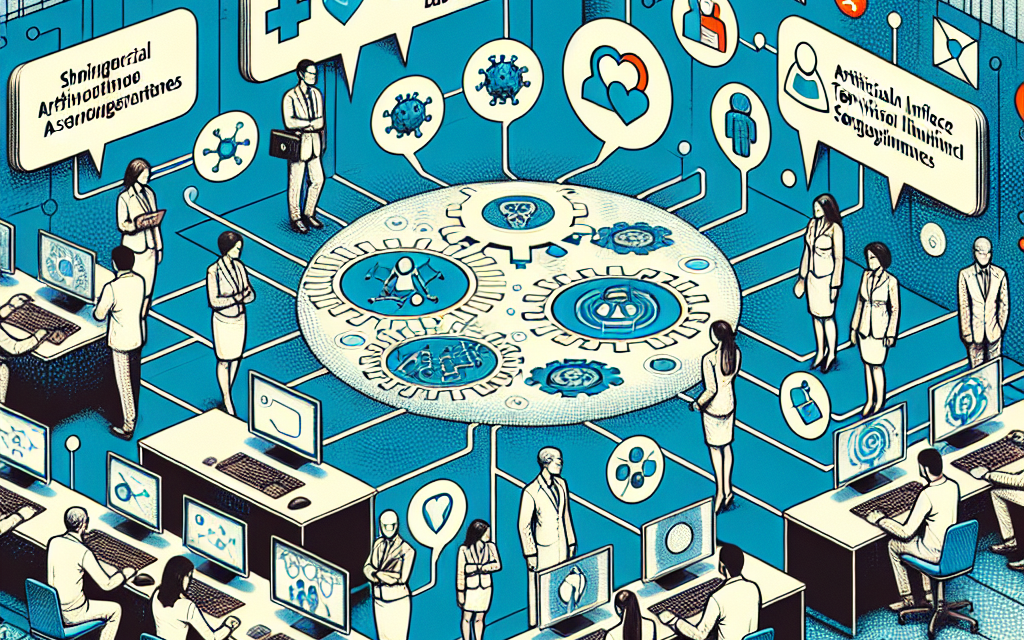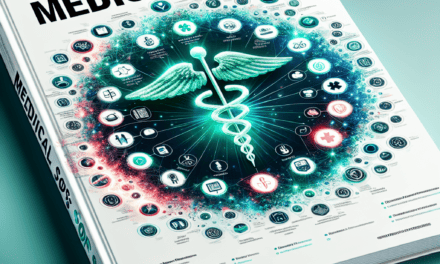Republicans Seek Revisions from HHS Regarding AI Assurance Labs
The rapid advancement of artificial intelligence (AI) technologies has prompted significant discussions around their regulation and oversight. In the United States, the Department of Health and Human Services (HHS) has been at the forefront of these discussions, particularly concerning the establishment of AI Assurance Labs. Recently, Republican lawmakers have expressed concerns and are seeking revisions to the HHS’s approach to these labs. This article delves into the implications of these revisions, the role of AI in healthcare, the political landscape surrounding this issue, and the potential impact on innovation and patient care.
The Role of AI in Healthcare
Artificial intelligence is transforming the healthcare landscape by enhancing diagnostic accuracy, personalizing treatment plans, and streamlining administrative processes. AI technologies, such as machine learning algorithms and natural language processing, are being integrated into various aspects of healthcare, including:
- Diagnostics: AI systems can analyze medical images, such as X-rays and MRIs, with remarkable precision. For instance, a study published in the journal *Nature* found that an AI model outperformed radiologists in detecting breast cancer in mammograms.
- Predictive Analytics: AI can analyze patient data to predict health outcomes, enabling proactive interventions. For example, AI algorithms can identify patients at risk of developing chronic diseases, allowing healthcare providers to implement preventive measures.
- Personalized Medicine: AI can analyze genetic information to tailor treatments to individual patients, improving efficacy and reducing side effects. This approach is particularly beneficial in oncology, where treatments can be customized based on a patient’s genetic profile.
- Operational Efficiency: AI can automate administrative tasks, such as scheduling and billing, reducing the burden on healthcare staff and allowing them to focus on patient care.
Despite these advancements, the integration of AI in healthcare raises ethical and regulatory concerns. Issues such as data privacy, algorithmic bias, and accountability for AI-driven decisions necessitate a robust framework for oversight. This is where AI Assurance Labs come into play.
Understanding AI Assurance Labs
AI Assurance Labs are intended to serve as testing and validation environments for AI technologies in healthcare. Their primary goals include:
- Ensuring Safety and Efficacy: Labs would evaluate AI systems to ensure they meet safety and efficacy standards before being deployed in clinical settings.
- Addressing Bias: Assurance Labs would assess AI algorithms for potential biases that could lead to disparities in healthcare outcomes.
- Facilitating Compliance: These labs would help AI developers navigate regulatory requirements, ensuring that their products comply with existing laws and guidelines.
- Promoting Transparency: By providing a framework for testing and validation, Assurance Labs would enhance transparency in AI technologies, fostering trust among healthcare providers and patients.
However, the establishment of these labs has not been without controversy. Republican lawmakers have raised concerns about the potential for overregulation and the impact on innovation in the healthcare sector.
Republican Concerns and Proposed Revisions
Republican lawmakers have voiced several concerns regarding the HHS’s approach to AI Assurance Labs. Their primary arguments include:
- Overregulation: Many Republicans fear that stringent regulations could stifle innovation in the AI sector. They argue that excessive oversight may deter companies from developing new technologies that could benefit patients.
- Impact on Competition: There are concerns that large tech companies may dominate the AI landscape, making it difficult for smaller startups to compete. Republicans advocate for a regulatory framework that encourages competition and innovation.
- Job Creation: The GOP emphasizes the potential for AI to create jobs in the healthcare sector. They argue that overly restrictive regulations could hinder job growth and economic development.
- Patient Access: Lawmakers are concerned that excessive regulation could delay the introduction of beneficial AI technologies, ultimately impacting patient access to innovative treatments.
In response to these concerns, Republican lawmakers have proposed revisions to the HHS’s framework for AI Assurance Labs. These revisions aim to strike a balance between ensuring safety and efficacy while promoting innovation and competition. Key proposals include:
- Streamlined Approval Processes: Republicans advocate for expedited approval processes for AI technologies that demonstrate safety and efficacy, reducing time-to-market for innovative solutions.
- Incentives for Startups: Proposals include tax incentives and grants for small businesses developing AI technologies, fostering a competitive environment.
- Stakeholder Engagement: Lawmakers emphasize the importance of engaging with industry stakeholders, including healthcare providers and technology developers, to ensure that regulations are practical and effective.
- Focus on Outcomes: Proposed revisions suggest a shift towards outcome-based evaluations of AI technologies, prioritizing patient outcomes over compliance with rigid regulatory frameworks.
The Political Landscape Surrounding AI Regulation
The debate over AI regulation in healthcare is not occurring in a vacuum; it is influenced by broader political dynamics. The Biden administration has prioritized technology regulation, particularly in the context of data privacy and algorithmic accountability. However, the Republican party has taken a more cautious approach, advocating for innovation and economic growth.
Key factors shaping the political landscape include:
- Public Opinion: As AI technologies become more prevalent in healthcare, public opinion is increasingly focused on issues such as data privacy and algorithmic bias. Lawmakers must navigate these concerns while balancing the need for innovation.
- Industry Lobbying: The healthcare and technology industries are actively lobbying for favorable regulations. Their influence can significantly impact the direction of AI regulation and the establishment of Assurance Labs.
- Interparty Dynamics: Within the Republican party, there is a growing divide between traditional conservatives advocating for limited government intervention and more progressive members who recognize the need for regulation in the face of rapid technological change.
- State vs. Federal Regulation: Some states are taking the lead in regulating AI technologies, creating a patchwork of regulations that could complicate compliance for companies operating nationally. This dynamic adds another layer of complexity to the federal regulatory landscape.
As the political landscape evolves, the future of AI regulation in healthcare remains uncertain. The outcome of ongoing discussions between Republican lawmakers and HHS will shape the trajectory of AI technologies in the sector.
Case Studies: AI in Action
To better understand the implications of AI in healthcare, it is essential to examine real-world case studies that highlight both the benefits and challenges of AI technologies. Here are a few notable examples:
- IBM Watson for Oncology: IBM Watson has been utilized in various healthcare settings to assist oncologists in making treatment decisions. While the technology has shown promise in analyzing vast amounts of data, it has faced criticism for inconsistent recommendations and concerns about its reliability. This case underscores the importance of rigorous testing and validation in Assurance Labs.
- Google DeepMind’s Eye Disease Detection: Google DeepMind developed an AI system capable of detecting eye diseases from retinal scans. The system demonstrated high accuracy in clinical trials, leading to its adoption in several healthcare facilities. This success story illustrates the potential of AI to improve diagnostic capabilities, but it also raises questions about data privacy and algorithmic bias.
- COVID-19 Predictive Analytics: During the COVID-19 pandemic, various AI models were developed to predict outbreaks and assess patient risk. While these models provided valuable insights, they also highlighted the challenges of data quality and the need for transparent algorithms. The lessons learned from this experience can inform the establishment of Assurance Labs.
These case studies emphasize the need for a balanced approach to AI regulation, one that fosters innovation while ensuring safety and efficacy. The establishment of AI Assurance Labs could play a crucial role in achieving this balance.
The Future of AI Assurance Labs
The future of AI Assurance Labs hinges on the ongoing discussions between Republican lawmakers and HHS. As the regulatory framework evolves, several key considerations will shape the effectiveness of these labs:
- Collaboration with Industry: Successful Assurance Labs will require collaboration between government agencies, healthcare providers, and technology developers. Engaging stakeholders in the regulatory process will ensure that the labs address real-world challenges and promote innovation.
- Focus on Education and Training: As AI technologies continue to evolve, there will be a growing need for education and training programs for healthcare professionals. Assurance Labs could play a role in developing training resources to ensure that providers are equipped to utilize AI effectively.
- Continuous Monitoring and Evaluation: The landscape of AI in healthcare is dynamic, necessitating ongoing monitoring and evaluation of AI technologies. Assurance Labs should implement mechanisms for continuous assessment to adapt to emerging challenges and opportunities.
- Global Collaboration: AI technologies are not confined to national borders. International collaboration on best practices and regulatory frameworks will be essential to address the global nature of AI in healthcare.
As the discussions surrounding AI Assurance Labs continue, it is crucial for lawmakers to consider the long-term implications of their decisions. Striking the right balance between regulation and innovation will be key to harnessing the full potential of AI in healthcare.
Conclusion
The push for revisions from Republican lawmakers regarding AI Assurance Labs reflects a broader debate about the role of regulation in fostering innovation while ensuring patient safety. As AI technologies continue to transform healthcare, establishing a robust framework for oversight is essential. The concerns raised by Republicans highlight the need for a balanced approach that promotes competition, encourages job creation, and prioritizes patient access to innovative treatments.
By examining the role of AI in healthcare, understanding the implications of Assurance Labs, and considering real-world case studies, it becomes clear that the future of AI regulation will significantly impact the healthcare landscape. As discussions between lawmakers and HHS progress, it is imperative to prioritize collaboration, education, and continuous evaluation to ensure that AI technologies are harnessed effectively for the benefit of patients and providers alike.
In summary, the establishment of AI Assurance Labs presents both opportunities and challenges. By addressing the concerns raised by Republican lawmakers and fostering an environment conducive to innovation, the healthcare sector can leverage AI technologies to improve patient outcomes and drive advancements in medical science.





